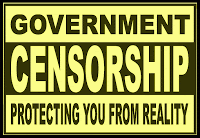This report of 28 February 1940 begins by discussing the fact that Britain and France censored news for domestic consumption, then compares the treatment of foreign correspondents by Britain, France, and other countries, including Germany:
Newspapers and the people in France and Britain complain of the lack of fully truthful news and now the censors’ own governments criticize the blue-pencil men both for what is published and what is withheld.
In Britain, there has been a series of public complaints which the government is trying to obviate by changing censors. Newspapers so far have failed to record improvement.
Foreign correspondents, especially those sending news to the United States, still suffer from delays, mistakes, and arbitrary decisions of censors.
Here is what the various countries are doing to control news:
Germany — no censorship on established correspondents such as those of the Associated Press. Correspondents are responsible for the truth and impartiality of the news they send.Britain and France — all news is censored whether sent by telephone, cable, wireless, or mail. [AP, 28 February 1940 (excerpt)]
Other governments also expelled foreign correspondents at times. For example, in 1937 the British government expelled three German correspondents. Thereupon Germany retaliated by asking that the Times of London replace its correspondent Norman Ebbutt. (The Age, 11 August 1937)
